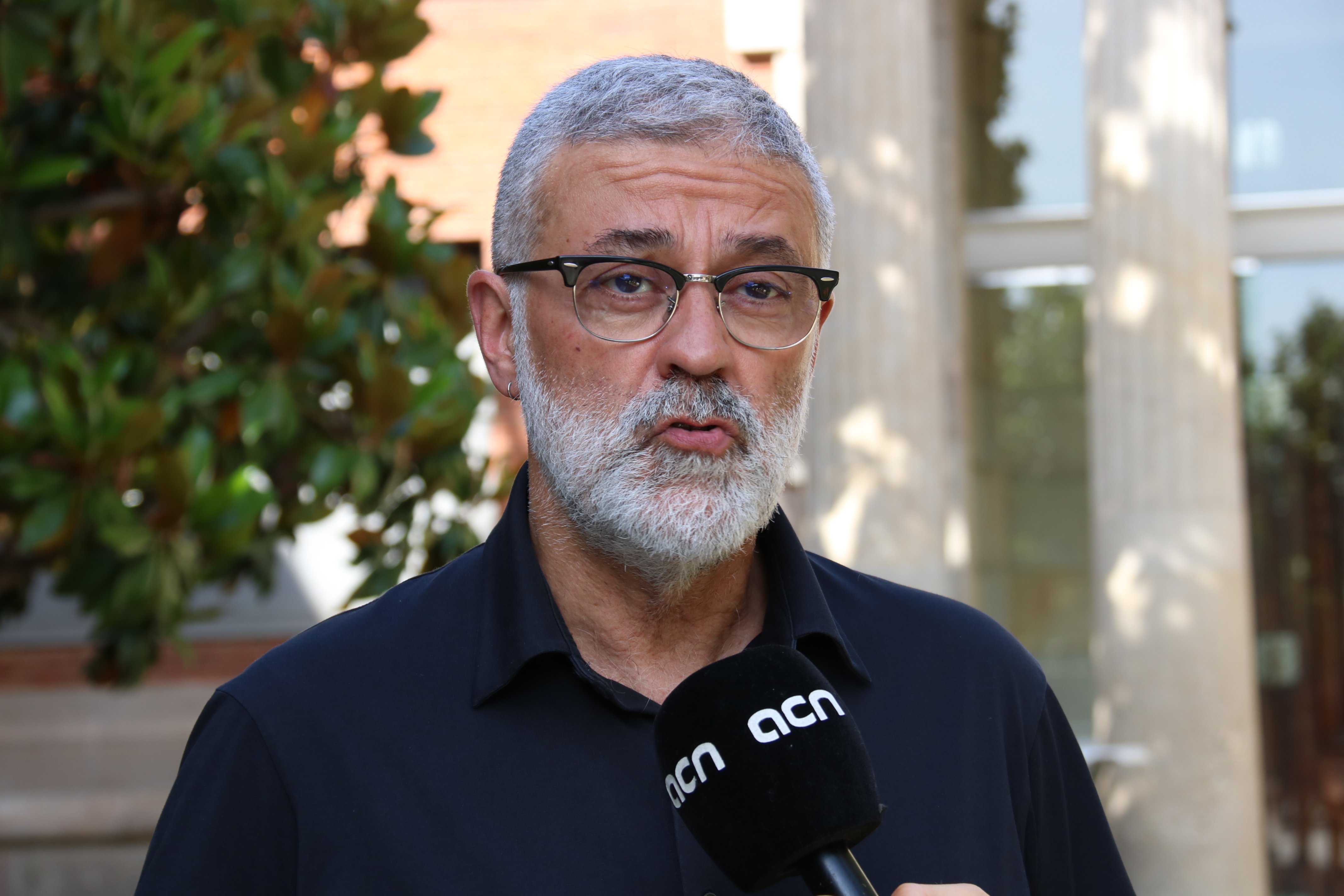After weeks without being involved, the CUP has made a move. Deputy Carles Riera announced this Friday that the far-left pro-independence party is now open to participate in the new negotiations being undertaken by the governing pro-independence parties ERC and Junts, the Socialists of the PSC and the alternative left Comuns, with the aim of protecting the Catalan language in schools, following the ruling of the Catalan High Court (TSJC) that imposes a quota of 25% Spanish use in classrooms. However, the party has set a key condition: that Pere Aragonès's executive call a meeting with the educational community to discuss this agreement. "The government must create and convene a negotiating table with the educational community, such as teachers' unions, students and families, in order to dialogue and agree on an effective solution to respond to the ruling, which will protect the immersion system and guarantee the vehicular use language of the Catalan language".
It is a notice that arrives in the middle of new negotiations started this week by the four parties that on March 24th announced an agreement that sought to reform the Catalonia's existing language policy law with the aim of protecting Catalan, although that text recognized the presence of Spanish in the classrooms, which led to harsh criticism from some sectors of the independence movement, including the CUP. Faced with that, the Junts party announced that it was moving away from the pact. However, this Thursday, ERC and Junts established a new proposal, which no longer involves reforming the current language policy law, but rather, commits itself to passing a new law to protect Catalan. The aim is to do so in the next plenary session of the Catalan Parliament, which takes place next week, ahead of the deadline imposed by the TSJC on 31st May. The PSC and the Comuns have been analyzing and working on the document since yesterday and, for the time being, have shown a willingness to accept it if there are any changes.
So the original four-way agreement could even become a five-way agreement: "If this negotiating framework with the educational community takes place, and the government creates it, we can participate in it with our proposals." Riera wanted to emphasize this point. "We can only put forward our proposal and our alternative at a negotiating table where the educational community is present. If this happens and we are there, we will obviously be open to hearing other proposals, other initiatives and other forms of legislative initiative that guarantee the same protection of immersion." He went on to say that this dialogue must be "frank and sincere" and recalled that there was "little time left", but said that there were "days and weekends to work".
The CUP has held talks in the last few hours with ERC and Junts, who have sent legislative proposals to the anti-capitalist group. However, Riera's party considers that at the moment no initiative proposed by these parties guarantees the protection of the Catalan language immersion system: "They are still moving in the field of adapting to the ruling of the TSJC, which imposes 25% Spanish", he warned. The CUP, therefore, urges the government to take advantage of the next few days to call the educational community to a table and negotiate the response to the court. Thus, a key week for the future of the language could be looming. The calling of an extraordinary cabinet meeting is not ruled out either, and possibly extraordinary meetings on Monday of parliamentary bodies: the procedural Bureau and the committee of party spokespeople.
Change of strategy
This move by the CUP marks a change in strategy. Until now, the formation had stuck to its position, not willing to accept any option other than to establish Catalan as the only vehicular language. Last week, and after it became known that Junts was definitively separating itself from the amendment to the language policy law, CUP deputy Nogay Ndiaye had already called on Junts, the ERC and the Comuns to abandon the PSC and join their proposal. However, the rest of the parties rejected this option. Thus, the CUP clearly felt left alone in the face of negotiations between the four parties, as Carles Riera himself stated yesterday, denouncing to TV3 that they felt "deliberately and explicitly excluded" because "no-one had ever invited them to any meeting ".

